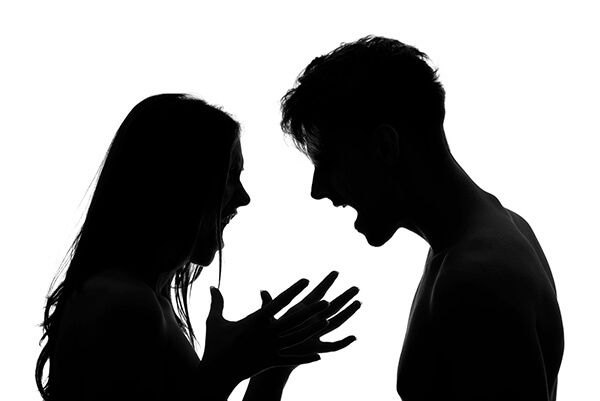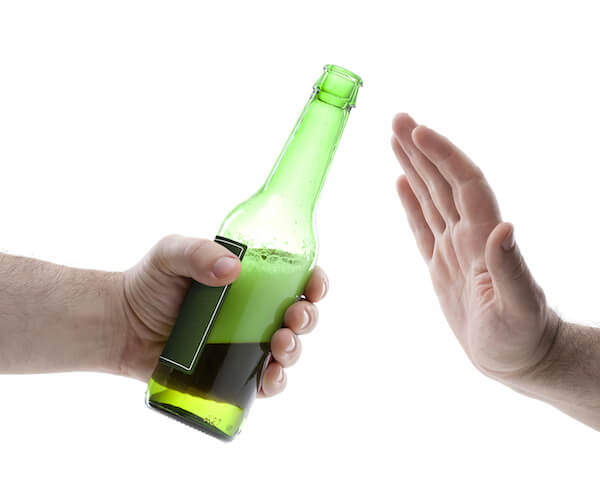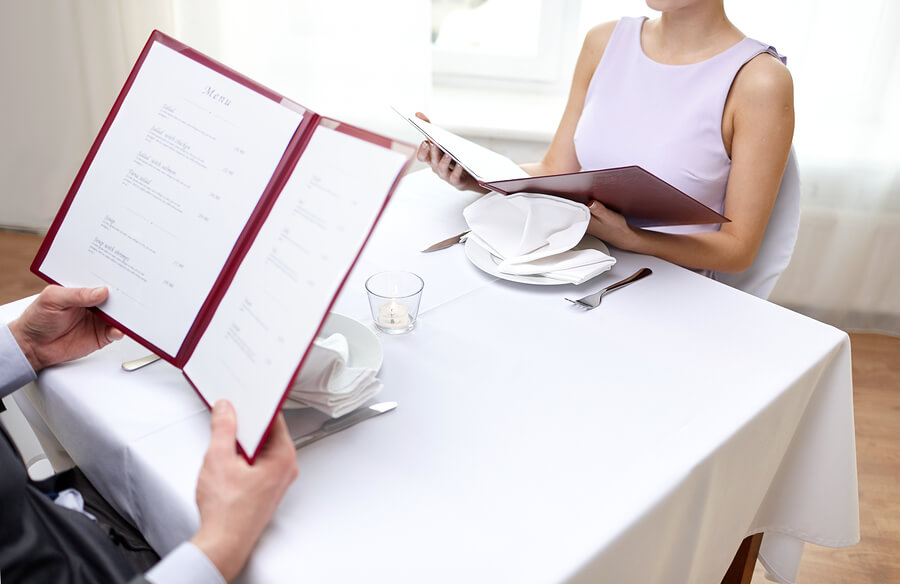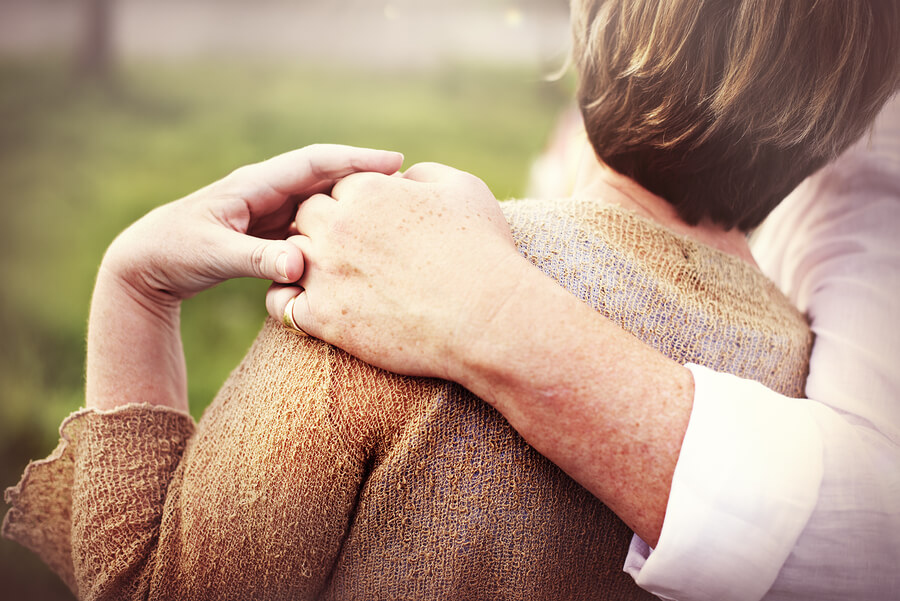Guide to Sober Dating
A substance abuse problem changes the way a person looks at the world, and treatment does much the same thing. A lot can change due to drug and alcohol addiction, and successful rehabilitation entails rebuilding a person’s life. When it comes to relationships, the realities and rules of abstinence after addiction become all the starker. Whether as a client or a companion, a guide to sober dating is very important in understanding how matters of the heart change.
Dating in Recovery
Many treatment programs discourage their members (either actively or otherwise) from pursuing romantic or sexual relationships in the aftermath of their recovery. The Fix tells the story of a eight-year-sober 33-year old man who, on the advice of his AA sponsor, “religiously avoided dating” for six months.

The official policy of Alcoholics Anonymous (as laid out in the Big Book) does not specifically close the door to dating in the early period of sobriety, but abstaining from relationships is an integral part of the conversation. Speaking to The Fix, a sex coach points out that substance abuse warps how people see themselves, and others around them; by the time they get to recovery, people have no idea of who they are. Without that sense of identity, it is all but impossible to form balanced, healthy connections with other people. Therapy and aftercare support go a long way in restoring bridges that were burned by the addiction, but dating requires much more work (and time) than simply rekindling a friendship. The sex coach told The Fix that in order to start a romantic or sexual relationship, those in recovery have to spend a lot of guided time getting to know themselves, especially who they are when they don’t have a drink in their hand and when the object of their affection is not the kind of person they would have been interested in during their drinking days. Such realizations and insights don’t come overnight, and they don’t come in a matter of weeks (or even months). Hence, the rule of thumb that people in recovery not date for the first year of their sobriety. The 33-year-old man who studiously stayed away from dating for the first six months re-entered the relationship scene as a fully committed and engaged member of his treatment program. But his first forays into sober dating were disastrous; he dated “messed up speed freaks” for five years, eventually coming to understand that even without a drink or drug in his hand, the lure of spending time with people who were on drugs themselves was attractive – even, to use his words, “sexy.”
The Loneliness of Sobriety

Why is the pull so strong? As any person going through recovery will say, being sober can be incredibly difficult. It can mean missing out on parties, it can mean being forced to cope with life’s struggles and challenges stone cold sober, and it can also mean being alone. The Fix quotes a 26-year old former heroin addict as saying that “getting sober is pretty lonely.” The apparent cure for the loneliness is often sought in likeminded people. Even for people who aren’t using anymore, and who consistently work the program, there is an unconscious identification with other addicts, to the point of seeking out romantic or sexual partners with substance abuse problems (either borderline or full blown). Part of the draw comes from the feeling of relapsing without actually doing it; a psyche that is still too strongly tempted by addiction can rationalize anything, including staying with a partner (or multiple partners) who are using drugs.
Additionally, “normal” sober dating can seem boring by comparison. A person in recovery can still well remember the tension and drama of a relationship affected by substance abuse. For all the arguing and threats of breaking up, there was an edge, a thrill of being in that kind of arrangement. That feeling can be a drug in and of itself, one that is not found in sober life (and especially not in sober relationships).
Furthermore, some people enjoy the feeling of dating someone with their own substance abuse problem, because it allows the person a sense of power (or even relief) at not being the “patient” in the relationship. For once, the attention – whether positive or negative – is on the other person. The person in recovery can vicariously enjoy all the good and bad that comes with that territory, without a single drink having to be consumed.
Risking Codependency
It is because of reasons like these that people should not only avoid entering into relationships in the first stretch of their sobriety, but they should also stay away from places and events that may prove to be too much of a challenge (like bars, nightclubs, certain parties and sports events, etc.). It may entail leaving early, being alone, or being considered the “boring” one, but the alternative is flirting with disaster. People in recovery need to take their recovery seriously, and that means not becoming obsessed with the idea of finding a partner at any cost. Rushing into a relationship breeds codependence, which is also known as “relationship addiction” because of how such arrangements are usually one-sided, abusive, and emotionally destructive – much like the original substance abuse problem. As an additional layer of protection, a person in recovery should also not date other people in recovery. The idea of fellow program members combining their sensitivities and weaknesses is fraught with danger. Psych Central writes that “recovering addicts need support,” and while the encouragement gained from other people on the same journey is invaluable, the line between support and unhealthy dependence becomes very thin, very quickly. For anyone going through treatment, relapse is always a possibility. Being involved with someone for whom that possibility also exists greatly increases the chance of the two people falling back into the same habits – only this time, together.
From ‘Train Wrecks’ to Taking It Slowly

One person confessed to The Fix that even after four years of Narcotics Anonymous, she couldn’t help but go back to the same strain of “train wreck relationships” that characterized her years as an addict. After the inevitable relapses, she recommitted herself to her treatment program. Newly sober, she didn’t date anyone for eight months, giving herself time to recognize the red flags that her earlier self was not ready to see. Her experiences and her treatment taught her that a partner who could respect and support her sobriety would also respect and support her as a romantic partner. It is not an easy lesson for anyone to learn, let alone someone in recovery, but the way to a healthy relationship is to take it “very, very slow,” in the words of a sexoligist and licensed addiction counselor. Whether repairing the bridge to a spouse or romantic partner, or forging ahead with a new person, a sober person has to give the relationship a chance to develop. This may mean putting off intimacy for a (long) period of time until the partner has made a clear commitment to the relationship, and both parties are on the same wavelength; this may mean a lot of dates and meetings where there is minimal physical contact. It could mean that the dates aren’t very “romantic” to begin with. The point is that sobriety has to be established as a priority from the outset. If anything about the relationship threatens to derail the process – if the partner wants to initiate sex before the person is ready, or if the partner expresses dissatisfaction with the person’s sober lifestyle, among other warning signs – then the relationship should be terminated before any lasting damage is done. As the people speaking to The Fix can attest, damage will inevitably be done if a relationship based on an unhealthy foundation is allowed to continue.
The Awkwardness of Dating

Elsewhere, The Fix points out that the process of dating itself is an “ever-awkward dance of anticipation.” Even for teetotalers and social drinkers, finding a potential partner carries a great deal of stress and pressure. For people in recovery, who are given a new lease on life and who are told that their future is exciting and promising, the discovery that getting to know a match carries the same Pandora’s Box of heartbreak and disappointment can be particularly difficult to deal with. Dating without drinking entails accepting that even as other parts of life look better in recovery, the quest to find love (or companionship, as applicable) can still be a long, occasionally ugly activity. It is made even harder by the ubiquitous presence of alcohol in American life. Happy hour, dinner with wine, and nightcaps are frequent enough on their own, and even more so when love and sex are considered. “Alcohol is everywhere,” says xoJane, with dating profiles, social media, television, and music often presenting drinking as a way to make life easier and happier. Such is the pervasiveness of the presence of alcohol that deliberately steering clear of alcohol on dates might send wrong messages about intentions and interests. A person in recovery has to look for the fun and excitement in dating while dutifully avoiding any temptations and, in the process, eschewing a rite of passage that millions of people take for granted. Most people think nothing of stopping after a glass or two of wine, or warming up the night with a draft beer. When they hear that a person cannot drink, that can change the entire tone of the conversation. Writing in The Fix, a sober woman confesses that a man she started dating expressed his disappointment that they could never share a glass of wine as a couple. The idea of there being two camps – “normal” people who can drink responsibly (and expect their partners to drink with them) and sober people who dare not drink for fear of triggering a relapse – can making sobriety seem like a deal-breaker when looking for love. For abstinent people, this can be especially disappointing. Their sobriety is an achievement, a successful overturning of years of alcoholic behavior. They had to sacrifice a great deal to become healthy again. For a potential romantic partner to be disappointed in this entails a form of rejection of a core component of the person’s identity. The woman’s therapist encouraged her to end the relationship, but as with all matters of the heart, the advice was hard to follow. The woman decided to keep seeing her partner, but they broke up a few weeks after that conversation. In conclusion, the woman writes that her sobriety has helped her regain control of her life and her mind, but it has made her romantic life much harder than it used to be.
Sobriety and Relationships
A writer for Salon echoes the point: Sobriety is great for health, but bad for dating. In the early stages of any relationship, the people involved struggle to find the right balance that works for both of them. For a couple where one party carries with them the specter of substance abuse, that balance can seem wildly off, especially when the people involved are still getting to know one another. Unless the topic has been broached, avoiding alcohol can be misinterpreted as a sign of only mild interest, with no intention of raising the stakes. Communication in the nascent stage of dating is never easy, especially when both parties bring their own insecurities and doubts to the table. The Salon writer ruminates on how, when he and a potential date were not clicking, he longed for the feeling of having alcohol in his system, the freedom and the energy it provided to get through moments of awkward silence. Recovering alcoholics have to learn that their confidence doesn’t have to come from whatever they’re drinking; the actual process of understanding and accepting that can feel emasculating, like their sobriety is preventing them from being the person they used to be. Even for all the trouble their drinking caused, they never had problems meeting other people.
For a drinker, alcohol makes people feel more interesting, says the Salon writer. Take that out of the equation, and dating when sober can seem confusing, frustrating, and even boring by comparison.
Couples in Therapy
 Vice Magazine conducted interviews with two couples on how difficult sober dating and relationships can be. In both couples, one person is a recovering drinker, and their respective partner drinks a lot. The sober partner in one of the couples admits that falling in love with a woman who actively drank was a threat to his sobriety; seeing how much fun she had when she was drunk, using her intoxication as a cover for his own desire to indulge, kissing her and smelling the alcohol on her breath, all pushed his abstinence to the brink. Alcohol is, officially and scientifically speaking, a social lubricant, but sometimes, merely being in the presence of someone who is drunk – or drinks in general – can be a lubricant all on its own. After nine months of dating, however, the woman is sober “from alcohol and most other things.” Her partner describes the current state of their relationship as “a little bit of a power struggle.”
Vice Magazine conducted interviews with two couples on how difficult sober dating and relationships can be. In both couples, one person is a recovering drinker, and their respective partner drinks a lot. The sober partner in one of the couples admits that falling in love with a woman who actively drank was a threat to his sobriety; seeing how much fun she had when she was drunk, using her intoxication as a cover for his own desire to indulge, kissing her and smelling the alcohol on her breath, all pushed his abstinence to the brink. Alcohol is, officially and scientifically speaking, a social lubricant, but sometimes, merely being in the presence of someone who is drunk – or drinks in general – can be a lubricant all on its own. After nine months of dating, however, the woman is sober “from alcohol and most other things.” Her partner describes the current state of their relationship as “a little bit of a power struggle.”
Dating in a World of Temptation

Dating in general is very different experience for women than it is for men. When the dynamics of gender psychology are exacerbated by substance abuse and the rehabilitation thereof, the perspectives can become even starker. Cosmopolitan magazine points out that while many women don’t have anything against dating a sober person, the list of caveats that comes with such an arrangement is often forgotten. The magazine lists “a few rules to follow” if someone is considering entering into a relationship with a person who has a different philosophy on drinking. Sober people, for example, are still working through their past issues with alcohol; being around a drinker (and being involved with a drinker) can make for an uncomfortable relationship. A former drinker tells Cosmopolitan that sober people “are always sober”; abstinence is not a switch that should be turned off for social (or even romantic) purposes, a reality that casual and active drinkers may struggle to comprehend or accept. Eventually, it may come down to accepting harsh realities. As most people in recovery will say, becoming sober entails living in a world that is not sober, and a dating scene that is inherently linked to alcohol consumption to make things happen.
Jezebel writes of the importance of communication. When the limits around alcohol are established, the people in the relationship have a better chance of being more comfortable in their new roles. Not clarifying things will likely set both partners up for an ugly falling out when “recovery” and “fun” are cast as opposing ends on the spectrum.
A couple with this dynamic will have to spend some time determining where the boundaries are; the partner in recovery will be made to feel self-conscious if the drinking partner feels constrained and embarrassed by not being able to have a glass of wine with dinner, especially in the company of friends. This may entail that the couple do things differently; some events might even be attended by the drinking partner alone, if there is danger that the environment may be too triggering for a relapse.
The Realities of Sober Dating
For all this, it is not impossible for a drinker and a sober person to date; like any relationship, however, it requires work, patience, communication, and understanding. Ironically, the sober partner may have an advantage. Psychology Today explains that people who have been through addiction therapy have, by nature, spent a lot of time learning how they can improve themselves. Through counseling, they have understood how to identify and process their emotions. A person who has been through recovery has made a deep commitment to living out values of honesty and integrity, and basing life decisions on achieving healthy goals and honoring values, not on short-term pleasure. Sober people know how to take care of their mind, body, and soul. Some do it through prayer, meditation, or yoga; others through exercise, hobbies, or community involvement. Recovery lasts for a lifetime, so sober people are in a constant state of improving and bettering themselves. While this is very useful in controlling the impulse to drink, it can also make a very firm foundation for a relationship with moderate drinkers. But even moderate drinkers bring their own perceptions and ideas about addiction to the table. Despite an overwhelming body of research refuting antiquated and inaccurate ideas about substance abuse, many myths still persist. The Johns Hopkins Bloomberg School of Public Health reported that the public feels more negatively about people with addiction issues than they do about people with mental health disorders. A responsible drinker who believes that alcoholism is a sign of a moral failing might not be a good match with a sober person, no matter how much work the person has put into recovery.
Working Together, for Each Other

Recovery, as any sober person will attest, is hard work; and like any form of hard work, a little help goes a long way. Some of that help comes in the form of aftercare support, like 12-Step groups and Alcoholics Anonymous, but investment and engagement from other people in the person’s life goes a long way. This means that friends and family should, when possible, participate in the pursuits that the person finds most beneficial to recovery. By extension, a significant other’s presence will also be a hugely reaffirming and inspiring boost to the person’s sobriety. A moderate drinker shouldn’t have to give up drinking to be with a sober individual, but understanding that there are some unique aspects of dating someone in recovery – such as provisionally disengaging from some activities and engaging in others (like attending support group meetings) – will lay the foundation for a healthy and thriving relationship. Any relationship requires sacrifice and compromise. A relationship between someone who enjoys drinking (and gets drunk on occasion) and someone who cannot drink at all will have to strike a very delicate balance of giving and taking. Sometimes, the two partners will need to have different plans for an evening. Sometimes, the sober partner will have to prioritize the sobriety over the relationship. There is no guarantee that sober dating will always be fun or easy; but if both partners are willing to make it work, then they can find true happiness in each other.
